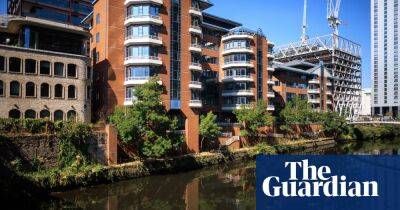Ignore the culture warriors – low traffic neighbourhoods don’t close streets, they liberate them
It reminds me of the school board controversies in the United States. A small group of furious men, whipped up by the media and opportunist politicians, are seeking to turn quiet, practical attempts to protect local people into full-blown culture wars. The further from reality their beliefs diverge, the readier they are to resort to vandalism and violence.
But this isn’t the US, and it’s not about textbooks. It’s playing out in the streets of Oxford. The angry men have resorted so far to arson, angle grinders and physical attacks on local people. What is the frightful cause of these reactions? The council’s efforts to ensure that through-traffic stays on main roads.
There could scarcely be a more reasonable policy. Low traffic neighbourhoods (LTNs) seek to stop residential streets being used as escape valves for overloaded arterial roads. They replace a privilege exercised by a few – rat-running through local streets – with rights enjoyed by the many: cleaner air, less noise, safe passage for children, cyclists, users of wheelchairs and mobility scooters, stronger communities.
The angry drivers insist that LTNs have been imposed on them. Well, whether they agree or not, there are consultations. But no one was consulted about their streets being used as short cuts. No one was consulted about facing a higher risk of asthma and dementia as a result of air pollution, or seeing their communities split by walls of traffic. No one was consulted about losing the places where neighbours could talk and children could play.
The shift has happened at astonishing speed. Between 1995 and 2019, urban traffic in Great Britain rose significantly. But not on major roads, where it grew by just 1%. On minor roads, by contrast, it rose by 36%.
Read more on theguardian.com
















